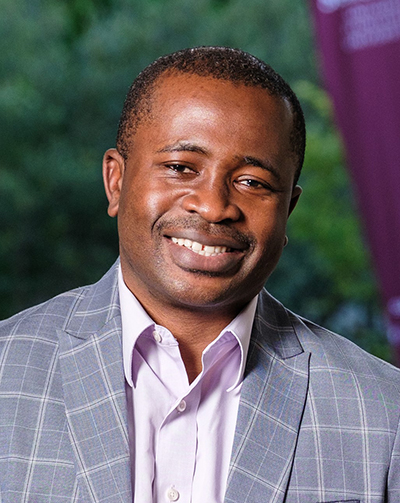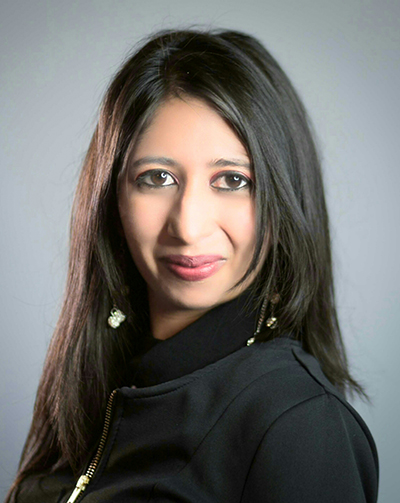A gathering of a group of top South African academics at the University of Mpumalanga in March signalled the successful culmination of the first and second stage of the Department of Higher Education and Training's (DHET) innovative Future Professors Programme (FPP), Phase 1.
The FPP is a collaborative initiative aimed at developing qualities of academic excellence and leadership among a select pool of academic staff from all 26 South African public universities. Funded by the DHET, the FPP operates nationally, administered at Stellenbosch University (Phase 1) and the University of Johannesburg (Phase 2).
The purpose of the programme is to build capacity in the South African national science system. It accelerates the readiness of talented early to mid-career academics across various scholarly disciplines to become full professors. The FPP provides intensive two-year fellowships offering comprehensive support, including assessments, mentoring, networking opportunities and international exposure.
Under the leadership of Prof Jonathan Jansen, distinguished Professor of Education at SU, the first stage of the FPP resulted in major academic and professional success for the close to 50 participants of cohort 1 and 2. Since its launch in 2020, almost 70% of the fellows have been promoted into the professoriate.
Despite many challenges brought on by the COVID pandemic, the elite group has garnered teaching and research accolades, published in top journals, produced scholarly books and earned major fellowships. Recently the FPP has even produced a member of the World Economic Forum's Young Global Leaders for 2023.
Inspirational leadership
Jansen has always been passionate about developing the potential of talented academics. The inception of the FPP programme was based on the success that had been achieved at the University of the Free State (UFS). During his term as Vice-Chancellor at UFS Jansen shifted the focus to the senior lecturer cohort.
“We asked how we can support the best and the brightest, those people who have the potential to become that small brand of professors, to guide them in their journey from senior lecturer to associate professor and then full professor," he said.
With assistance from the DHET, Jansen and a dedicated team took the lessons from those experiences and added more material to develop a systematic programme for promising senior lecturers to become professors.
A book co-edited by Jansen and Prof Daniel Visser, On becoming a scholar: What every academic needs to know, encapsulates the lessons of the FPP programme. It covers topics such as research, teaching, academic connections, becoming an editor, gauging your performance, academic leadership, and balancing academic work and home life.
“We wanted to make knowledge available to aspirant professors in a curriculum that would get them there quickly, but also give them a sense of fulfilment in the process," Jansen explained.
“We make a detailed assessment of each fellow in terms of the framework provided by the National Research Foundation (NRF). We provide them with social, psychological and emotional support. This has turned out te be one of the key successes of the FPP," Jansen stressed.
Personal interaction in the FPP context facilitated collaboration and strong bonds between a diverse group of academics. “It provided a crucial support system during the COVID pandemic when academics felt very isolated. Over the past few years, the participants in the first two cohorts have become a virtual community of scholars who have forged close friendships and collaborated on research projects," Jansen noted.
The FPP also brings academics into contact with leading thinkers in the world across a range of disciplines and provides participants access to international networks of academic expertise.
At the graduation of the first two cohorts in Mpumalanga, Jansen gave an inspirational message, highlighting key aspects not typically taught in academia. He emphasised the importance of handling academic envy by staying focused and engaging with criticism in a positive way.
He also stressed the significance of researcher humility, reminding scholars to remain grounded and support the growth of those around them.
“Be generous in sharing your knowledge not only with scientists and scholars but with communities on the margins of society. In this respect, do not simply give of your resources, intellectual or material; that is relatively straightforward. Learn also to give of yourself," Jansen said.
The ceremony at the University of Mpumalanga was hosted in partnership with SU and attended by dignitaries representing the DHET and all major universities. Prof Sibusiso Moyo, Deputy Vice-Chancellor: Research, Innovation and Postgraduate Studies also represented SU at the event where the Director General, Dr Nkosinathi Sishi, represented the Minister of Higher Education, Science and Innovation and delivered keynote remarks.
Two fellows from SU share their experience of participating in the FPP

Dr Tongai Maponga of the Division of Medical Virology at Stellenbosch University (SU) credits the FPP for a major turnaround in his career path. His research involves the use of metagenomic sequencing to identify unrecognised and novel viruses causing central nervous system infection in people living with HIV infection in South Africa.
“I received invaluable encouragement from colleagues who had previously walked the journey I'm on. When I was accepted into the FPP, I was in a position of uncertainty and frustration that drove me to the brink of quitting an academic career. The encouragement of colleagues, especially within my coaching group, allowed me to continue. The advice I received is lifelong," he says.
Through coaching sessions and interactions with fellow FPP participants, Maponga honed important interpersonal skills, enhancing his interactions with colleagues and students. “I also gained skills on maintaining a healthy work-life balance through listening to and learning from the various speakers whom the FPP introduced me to. Now, I even value sleep more than I did before."
Maponga appreciated the structured yet informal approach of FPP activities, providing exposure to accomplished scholars and fostering stimulating discussions. “The multidisciplinary nature of the FPP fellows and mentors provided an amazing opportunity for learning and sharing experiences, more so when taking into account that fellows came from different institutions and backgrounds. Many initiatives tend to be restricted within institutions, a situation which could sometimes perpetuate toxic practices, but learning from other institutions allows unlearning of unhealthy practices."
A big milestone over the past few years has been an appointment to the National Health Laboratory Services (NHLS), Maponga says. “The post allows me to hold a dual appointment with the NHLS and Stellenbosch University enabling me to continue on an academic trajectory and carry out research without having to worry about a salary."
Maponga is excited about potential future research collaborations from FPP discussions, particularly in implementing ideas explored during writing retreats.
“I advise anyone who gets the chance to be part of the FPP to seize the opportunity and to absorb as much as they can from other fellows, the different mentors and speakers that are invited to interact with fellows and to learn from the implementors who are wonderful and brilliant scholars."
Dr Yaseera Ismail, a senior lecturer in physics at SU, joined the FPP in 2021. She specialises in the development of quantum technologies, particularly in the field of quantum information science.

“I commenced the programme with the news of my promotion to senior lecturer and the attainment of my Y1 NRF Rating, marking a significant achievement in my academic career trajectory. I was already a principal investigator of a multilateral BRICS collaboration, however during the programme I attained alternative sources of funding which contributed to the growth in my career and publication record," Ismael explains.
The FPP facilitated networking and collaboration across diverse disciplines and institutions. “Through this network I published an article with FFP fellows titled The Fourth Industrial Revolution – what does it mean to our future faculty? I was able to meet Prof Sibusiso Moyo, Deputy Vice-Chancellor: Research, Innovation and Postgraduate Studies at (SU) which led to being recognised as a rising star and resulted in invitations to the Bill and Melinda Gates Foundation events in South Africa.
“The NRF mock rating process proved to be immensely valuable, offering insight into narrative construction and prompting strategic planning for the subsequent rating round. Additionally, learning from the experiences of fellow researchers proved tremendously helpful, providing foresight on navigating growth within the South African landscape and attaining international recognition especially with creating your academic identity."
Ismail says the network of fellows across South Africa's universities provided invaluable connections, with mini-conferences fostering cross-collaboration and exposure to research activities. Writing retreats offered focused time for manuscript completion and discussions in small groups.
“Exposure to a diverse array of grant opportunities and fellowships was another significant benefit of being a FPP fellow. The programme's approach of identifying and addressing the specific needs of each fellow ensured tailored guidance throughout, rather than adopting a one-size-fits-all approach. Continuous access to programme leads aided us in navigating our academic challenges effectively. Moreover, the emphasis on wellness, facilitated by life coaches, and the provision of coping mechanisms for managing the daily stresses of academia were particularly noteworthy aspects of the programme.
“I had the privilege of presenting at the FPP Mini-Conference, an experience that proved insightful. Often, our focus remains entrenched in our respective academic domains; however, this multidisciplinary event afforded a fresh perspective on our research. Additionally, I took part in the Science Event, which brought together professionals from diverse fields including physics, mathematics, and chemistry. This platform offered an opportunity for in-depth presentations, sparking detailed discussions where we explored the intersections of our research areas where we discovered potential collaborative projects amidst these overlaps."
Ismail strongly recommends that mid-career academics consider applying to the FPP for skill development, networking and career advancement opportunities. “By enhancing and refining research strategies, the FPP equips participants with key skills essential for advancing in academia. The programme facilitates networking and collaboration with fellow academics from universities in South Africa and internationally, opening doors to new opportunities and collaborations."

